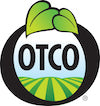What if the Government Asked You to Eat Less Meat?

Every five years, the government issues its dietary guidelines aimed at improving national health. Eating less meat has been encouraged in recent years, particularly red meat, to make room for healthy fruits and vegetables, whole grains, beans and legumes. But what about eating less meat to save the planet? Should the government have an opinion on that?
Now, an advisory panel to the USDA’s Health and Human Services Departments has been talking about reducing meat consumption as part of its dietary recommendations.
“A new focus on the environment would mean asking people to choose more fruits, vegetables, nuts, whole grains and other plant-based foods — possibly at the expense of meat,” reports SFGate.
According to SFGate, “a draft recommendation circulated by the advisory committee in December said a sustainable diet helps ensure food access for both the current population and future generations.” The draft noted that eating less meat is "more health promoting and is associated with lesser environmental impact than is the current average U.S. diet."
That recommendation, of course, is not sitting well with the beef industry, which says that the environment has no place in discussions about healthy diets, and definitely has no place in recommending less meat. For years it has petitioned to keep the dietary guidelines from recommending less meat. But a study conducted last year by the National Academy of Sciences noted that raising beef is more damaging to the planet than raising pork or chicken. Beef produces more heat-trapping gases per calorie, creates more water-polluting nitrogen and uses more water and land.
“As the advisory committee has discussed the idea, doctors and academics on the panel have framed sustainability in terms of conserving food resources and also what are the healthiest foods,” SFGate reports. “There is ‘compatibility and overlap’ between what's good for health and good for the environment.”
Leave a comment
Comments will be approved before showing up.


